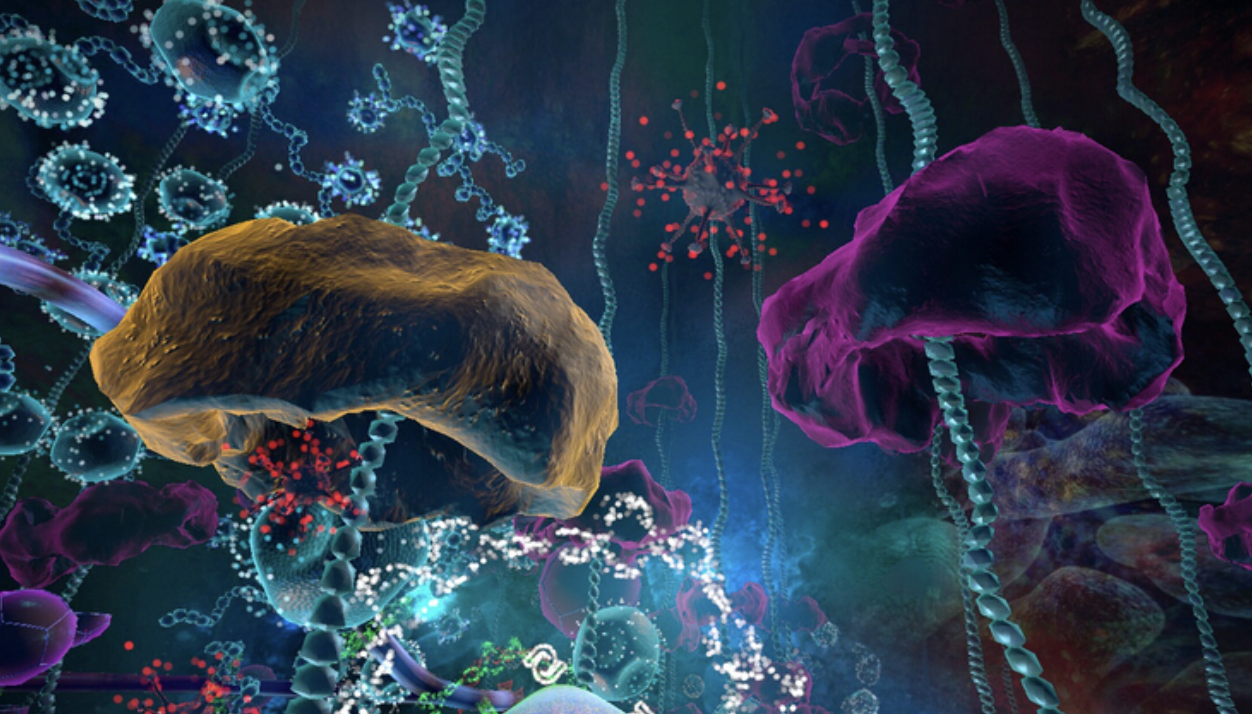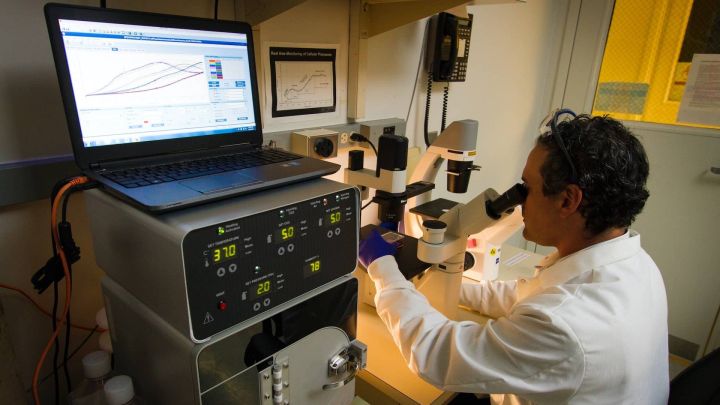Apparatus
Significantly Longer Survival In Refractory Breast Cancer With The Addition Of Eganelisib To Standard Treatment!
Data from a trial show that adding the new drug Eganelisib to standard treatment significantly improves the length of survival for patients with triple-negative breast cancer whose disease remains unexacerbated. Patients benefited regardless of their PD-L1 status.

The addition of the new drug Eganelisib to Atezolizumab in combination with albumin paclitaxel significantly prolonged progression-free survival in patients with metastatic triple-negative breast cancer, according to updated data from a phase 2 trial.
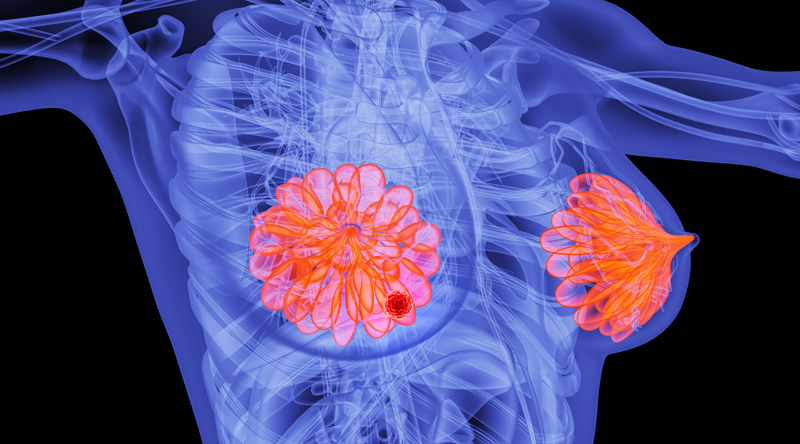
Eganelisib (IPI-549), a class I innovation, is an oral PI3K-γ inhibitor that primarily targets M2 macrophages in the breast cancer microenvironment. M2 macrophages suppress the effects of immunotherapy, while Eganelisib converts M2 into more cancer-friendly M1 cells, thereby downregulating immunosuppression, increasing immune activity and promoting killer T-cell activation and proliferation.
The trial is a MARIO-3 study with a single patient group, all patients enrolled were treated with oral Eganelisib in combination with Atezolizumab+albumin paclitaxel.
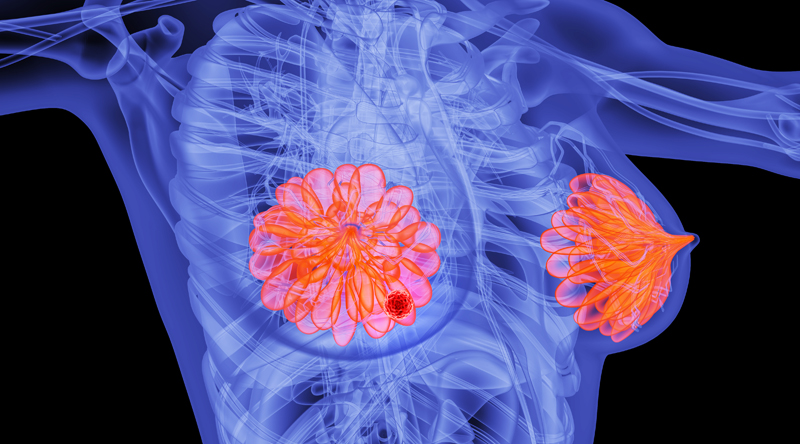
Follow-up of the enrolled patients for a mean of 10 months revealed that the proportion of patients with no further disease exacerbation for up to 1 year was 36%. This compares with 23.7% of patients treated with Atezolizumab + albumin paclitaxel alone for 1 year in the previous IMpassion130 study. This means that the addition of Eganelisib resulted in a 52% improvement in the disease profile of patients.
The proportion of PD-L1 positive patients with sustained 1 year disease free exacerbation was 37.5%, compared to 29.1% for Atezolizumab + albumin paclitaxel treatment in the IMpassion130 study. This means that the addition of Eganelisib resulted in a 29% improvement in the patient's disease profile.
Among PD-L1-negative patients, the proportion of patients with sustained 1-year disease without exacerbation was 34.7%.
"It is pleasing to see that Eganelisib + standard of care treatment, significantly prolonged progression-free survival, benefiting patients regardless of their PD-L1 status."
This updated data also shows that the addition of Eganelisib resulted in substantial tumour shrinkage in 66.7% of PD-L1-positive patients. And in the IMpassion130 trial, treatment with Atezolizumab + albumin paclitaxel alone resulted in substantial tumour shrinkage in 58.9% of patients.
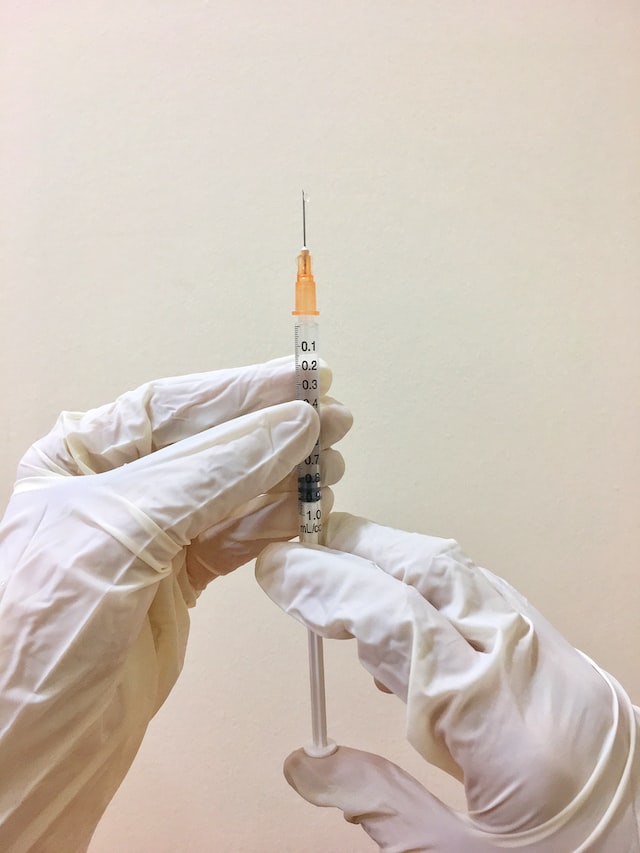
In PD-L1-negative patients, the addition of Eganelisib resulted in substantial tumour shrinkage in 54.3% of patients.
Common side effects of treatment included fatigue, adverse skin reactions, nausea, hepatotoxicity, diarrhoea, alopecia, neutropenia, vomiting, fever, peripheral neuropathy, stomatitis, and decreased appetite.
In addition to triple-negative breast cancer, the addition of Eganelisib has led to better survival outcomes in both uroepithelial carcinoma and immune checkpoint inhibitor-refractory head and neck squamous cell carcinoma, all of which suggest that Eganelisib can prolong long-term survival for patients.
-
![]()
![]() ApparatusMar 03, 2026
ApparatusMar 03, 2026Is ibuprofen a cold medicine
-
![]()
![]() ApparatusMar 02, 2026
ApparatusMar 02, 2026New CAR-T Therapy CB-010, Granted Two FDA Designations And Three Patients Are Cancer-Free For Six Months!
-
![]()
![]() ApparatusMar 01, 2026
ApparatusMar 01, 2026FDA Grants Orphan Drug Status To Two New Therapies In a Row, And These Two Groups Of Patients Are Expected To Benefit!
-
![]()
![]() ApparatusFeb 28, 2026
ApparatusFeb 28, 2026Perkinelmer Launches Industry-First Cell Analysis Solution
-
![]()
![]() ApparatusFeb 27, 2026
ApparatusFeb 27, 2026Clinical Approval For Colombotide Skb264 (Mk-2870) In Combination With Oxitinib

